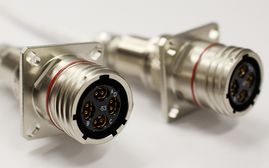
Processing Your Payment
Please do not leave this page until complete. This can take a few moments.
-
News
-
Editions
-
- Lists
-
Viewpoints
-
HBJ Events
-
Event Info
- 2024 Economic Outlook Webinar Presented by: NBT Bank
- Best Places to Work in Connecticut 2024
- Top 25 Women In Business Awards 2024
- Connecticut's Family Business Awards 2024
- What's Your Story? A Small Business Giveaway 2024 Presented By: Torrington Savings Bank
- 40 Under Forty Awards 2024
- C-Suite and Lifetime Achievement Awards 2024
- Connecticut's Health Care Heroes Awards 2024
-
-
Business Calendar
-
Custom Content
- News
-
Editions
View Digital Editions
Biweekly Issues
- April 29, 2024
- April 15, 2024
- April 1, 2024
- March 18, 2024
- March 4, 2024
- February 19, 2024
- February 5, 2024
- January 22, 2024
- January 8, 2024
- + More
Special Editions
- Lists
- Viewpoints
-
HBJ Events
Event Info
- View all Events
- 2024 Economic Outlook Webinar Presented by: NBT Bank
- Best Places to Work in Connecticut 2024
- Top 25 Women In Business Awards 2024
- Connecticut's Family Business Awards 2024
- What's Your Story? A Small Business Giveaway 2024 Presented By: Torrington Savings Bank
- 40 Under Forty Awards 2024
- C-Suite and Lifetime Achievement Awards 2024
- Connecticut's Health Care Heroes Awards 2024
Award Honorees
- Business Calendar
- Custom Content
Wallingford’s Amphenol among CT companies taking hits from coronavirus
 Photo | Contributed
Amphenol's oval contact system connector is one of many products it makes.
Photo | Contributed
Amphenol's oval contact system connector is one of many products it makes.
Wallingford connector and cable maker Amphenol Corp. announced Monday it doesn’t expect to make its first-quarter sales projections, largely due to the coronavirus outbreak in China.
The virus, which researchers believe originated from the central Chinese city of Wuhan, has caused widespread disruptions in the region, Amphenol said, creating uncertainty when full production of its Chinese facilities and demand among the Asian country's customers will be restored.
Amphenol said it’s not able to quantify the full impact of the virus, but it was expecting to resume full production in China by the end of the extended Chinese New Year holiday, which ended Feb. 2.
That hasn’t happened and now the company expects to miss on its first quarter quarter projections, which forecasted sales in the range of $1.96 billion to $2 billion, or 85 cents per share to 87 cents per share.
The company’s stock price Monday lost about 4% of its value ending the day at $97.67.
“... we are experiencing a slower return to normal business conditions than we originally anticipated,” said Amphenol CEO Adam Norwitt on Monday. “As of today, all of our China operations have re-opened and more than 60% of our China-based employees have returned to work, despite ongoing significant restrictions on movement within China.”

China is a major market for Amphenol.
The country constituted about 28% of the company’s net sales last year, according to Amphenol’s recently released annual report. It’s not clear how many of Amphenol’s employees are based in China, but about 90% of its workers operate outside the U.S.
The company’s website lists 52 Chinese locations.
Amphenol is far from the only Connecticut company being affected by the ongoing health crisis the virus poses. Other global players like Stanley Black & Decker, United Technologies Corp. and Aetna are also seeing effects, including travel bans restricting access to China facilities, products and customers.
Meantime, stock markets plunged around the world Monday after the number of coronavirus cases surged in Italy and South Korea, putting two more major economies at risk from a virus that has already caused widespread disruption in China.
The Dow (INDU) closed 1,032 points, or 3.6%, lower, marking its worst day in two years, when it closed down more than 1,000 points twice within a week as inflation fears gripped Wall Street. On February 5 and again on February 8, 2018, the Dow's percentage drop was more than 4% on both days.
Since the index is higher now, on a percentage basis Monday's selloff isn't as dramatic as other drops in the Dow's history.
Still, it was only the third time in history that the index closed more than 1,000 lower. It is now in the red for the year and at its lowest point total since December 11.
A growing number of companies are warning that the coronavirus will prevent them from meeting sales or profit targets for the first three months of the year. Reduced demand for goods and services, and factory closures in China, are also expected to knock the global economy and weigh on trade at a time when Japan and Germany are already teetering on the brink of recession.
Coronavirus-related deaths have risen to more than 2,620 worldwide, with over 30 outside of mainland China. There are at least 79,300 confirmed cases globally.
Related Content

2022 Giving Guide
This special edition informs and connects businesses with nonprofit organizations that are aligned with what they care about. Each nonprofit profile provides a crisp snapshot of the organization’s mission, goals, area of service, giving and volunteer opportunities and board leadership.
Learn more
Subscribe
Hartford Business Journal provides the top coverage of news, trends, data, politics and personalities of the area’s business community. Get the news and information you need from the award-winning writers at HBJ. Don’t miss out - subscribe today.
Subscribe
2024 Book of Lists
Delivering Vital Marketplace Content and Context to Senior Decision Makers Throughout Greater Hartford and the State ... All Year Long!
Read Here-
2022 Giving Guide
This special edition informs and connects businesses with nonprofit organizations that are aligned with what they care about. Each nonprofit profile provides a crisp snapshot of the organization’s mission, goals, area of service, giving and volunteer opportunities and board leadership.
-
Subscribe
Hartford Business Journal provides the top coverage of news, trends, data, politics and personalities of the area’s business community. Get the news and information you need from the award-winning writers at HBJ. Don’t miss out - subscribe today.
-
2024 Book of Lists
Delivering Vital Marketplace Content and Context to Senior Decision Makers Throughout Greater Hartford and the State ... All Year Long!
ABOUT
ADVERTISE
NEW ENGLAND BUSINESS MEDIA SITES
No articles left
Get access now
In order to use this feature, we need some information from you. You can also login or register for a free account.
By clicking submit you are agreeing to our cookie usage and Privacy Policy
Already have an account? Login
Already have an account? Login
Want to create an account? Register
Get access now
In order to use this feature, we need some information from you. You can also login or register for a free account.
By clicking submit you are agreeing to our cookie usage and Privacy Policy
Already have an account? Login
Already have an account? Login
Want to create an account? Register









0 Comments